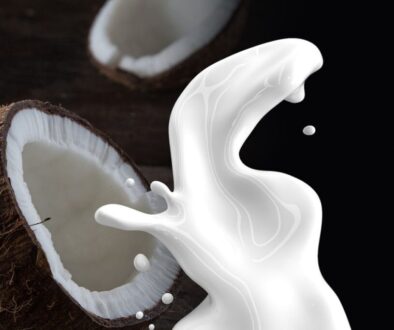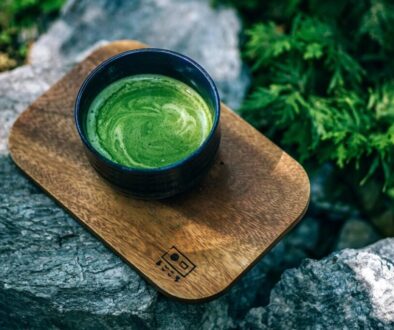Dishwashing-The Inside Scoop

Picture by Aritha on Pixabay
Article by Helen Lovell-Wayne
https://www.instagram.com/agreenerftr/
This paper informs consumers about products they may currently be buying. Hopefully this article will increase consumer demand. As a result, industries should supply safer and more sustainable products.
Dishwashers are convenient machines that save time. However, they also utilize chemicals that are destroying both our bodies and the natural environment. Environmentally friendly alternatives warrant consideration as a viable replacement for chemical options.
Dishwashing companies only list some of the chemicals in their products (A.I. Abdurazakova 2023). They are not required to reveal all of the chemicals they utilize. Furthermore, these unknown chemicals are responsible for numerous diseases. Moreover, statistically speaking 70% of emerging onocological diseases are attributed to the use of dishwasher detergents (A.I. Abdurazakova 2023).
🤒Dishwashing Detergent Can Cause Health Problems👃
Surfactants are chemical compounds that reduce surface tension when added to water. By the same token, they are an integral part of dishwashing liquid. Additionally, surfactants in dishwashing detergents tend to accumulate on surfaces or interfaces. Thus, the surfacants tend to stay on plates after they are washed. So poeple are likely eating chemical compounds along with thier meal (Nathie Chahine and W. Chalhoub 2022). This could result in adverse health effects. For example, studies on zebra fish have shown that detergents cause oxidative stress. Oxidative stress occurs even at low detergent levels (Nathie Chahine and W. Chalhoub 2022). Generally speaking, oxidative stress is the imbalance of harmful free radicals in your body. This imbalance can result in damage to your organs and tissues.
It is not just the chemicals in dishwashing detergent that can harm living things. Equally important to human health are the fragrances in detergents. Notably, fragrances can damage the respiratory tract. Additionally fragrances can cause diseases in people (A.I. Abdurazakova 2023). Additionally, when these chemicals, including those added for appealing fragrance, enter the wastewater stream. In that location they can cause algal blooms. Which deplete the water of oxygen. Resulting in the death of both aquatic plants and animals (A.I. Abdurazakova 2023). To read more about water contamination, see A Tale Of Two Papers.
🌽 Consumers Are Buying More Green Dishwashing Products🥜
Fortunately, consumers are starting to accept and embrace green dishwashing products. As a result, green dishwashing products have an annual growth rate of 4.5 % (Charles Bronzo et al. 2021). Green dishwashing liquids are made from surfactants chemically synthesized from raw materials. Because they are produced from renewable resources, these substances are called green surfactants (Charles Bronzo et al. 2021).
Specifically, green surfactants are derived from vegetable oils and animal fat (Charles Bronzo et al. 2021). Furthermore they are more efficient than traditional detergent at reducing surface tension. Additionally, they are more tolerant of the high temperatures and variable Ph conditions found in dishwashers. Green detergents are more efficient at removing food particles than their chemically derived counterparts (Charles Bronzo et al. 2021).
🍋Make Your Own Dishwashing Detergent🧂
The biggest obstacle to widespread use of green surfactants is the cost. The production of these liquids takes longer and incurs high energy and maintenance costs (Charles Bronzo et al. 2021). Luckily, there is a way for people to make their own detergent.
Green tea mixed with coconut oil is an effective and easy way to create a homemade detergent (Sarvin Kanth and R. Kanth 2020). Additionally, the following recipe is taught in Indonesia. It is a way to make dishwashing liquid from cooking oil. The teachers of this recipe are both volunteers and engineering students. Mix used cooking oil and potassium hydroxide at 140-158 degrees Fahrenheit for one hour. Then agitate every 15 minutes for 2-3 hours until it becomes solidified and transparent. Then dissolve in warm water. Afteward add a little lemon juice for an appealing scent (Evelyn Evelyn et al. 2018). Any combination of vinegar, water, lemon juice, kosher salt and washing soda could work as well.
💧 Dishwashing Responsibly 🫧
Dishwashers are convenient and essential for modern day life. However, they cause disease and are hurting the environment. Simply changing the detergent you use, or making your own can make your household and the planet healthier.




August 18, 2025 @ 6:21 pm
Hi! I’ve seen a ton of reviews saying that no homemade detergent works. I’ve got all the ingredients I’ve seen listed (and then some lol), I’m just scared to waste anything by mixing it the wrong way. Could you give me an exact recipe for the most effective dishwasher detergent, in your opinion, please?
September 20, 2025 @ 3:36 pm
I just saw this comment. I have used homemade detergents for the last 5 months. What I have found is that kosher salt is incredible. It des a great job with the silverware. However if you use too much it causes streaks on the plates. These streaks can be washed off. You need to play around with the amount till you get it right. Secondly I place a bowl of vinegar in the top drawer. This helps soften the water. The plates and bowls really shine when this done. The only problem I have not been able to solve is the glasses get cloudly. I need to rinse them out each time. I understand this has to do with the amount of washing soda I am using. Once I figure that out, I would say that homemade is better than the chemicals.
September 20, 2025 @ 6:42 pm
I have hard water so my strategy might not work for you. I acutally go online and find a hard water recipe and follow it. I am still looking for one that doesn’t cloud the glasses. I never use acutal dishwashing soap that some of the recipes call for. I also have bad experiences with borax so I don’t use ones with that in it either. Whenever a reciepe calls for kosher salt I only put in 3/4 of what they ask for. Then I subsitute sea salt for the rest. That seems to work well. Anything with baking soda, lemon juice and/or citric acid, salt (is it says salt put in kosher salt) and/or washing soda tends to work well. I put them in ice cube container so I make tablets. If you do it this way make sure to not add too much lemon juice. make it just enough so it is pasty. Otherwise it takes days to dry out and use. If you put it in a jar without making a tablet, the combination tends to get hard, and people have to keep shaking it every other day. I would rather just make it and leave it alone. That is why I make tablets.
February 25, 2026 @ 10:46 am
Ok. I now have an almost perfect reciepe at least for hard water. 2/3 A cup of baking soda 2/3 a cup of washing soda, 2/3 a cup of citric acid. 2/3 a cup of salt. More than 1/3 of this should be kosher salt. I usually use 1/3, put 1/2 of the next 1/3 of Kosher. The rest is “normal salt.” Then add just under 1 cup of vinegar. I like to have it 1/2 between 2/3 and 1 cup. Mix this together until it is an even paste. Add it to a silicone tray and wait about 6-8 hours. Then I put the tablets into a glass jar.